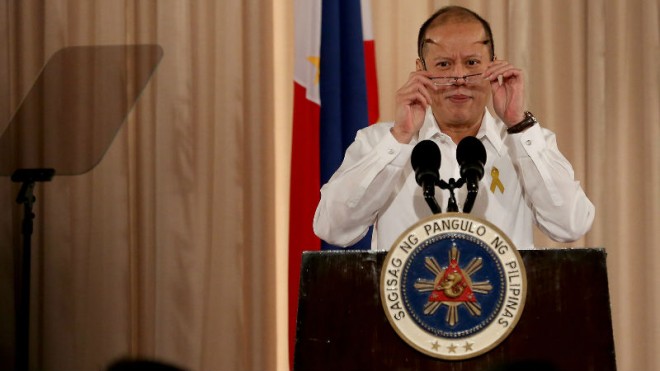Noting the latest Pulse Asia survey, which showed increases in President Aquino’s trust and approval ratings for the last quarter of 2015 at 53 percent and 55 percent, respectively, Malacañang Wednesday said it was “greatly humbled by the show of support and trust by our citizens.”
That is, even as the Aquino administration continues to “serve with greater passion and determination to deliver on vital social reform and development programs in the remaining months” of the President’s term, said Presidential Communications Secretary Herminio Coloma Jr.
In a statement, Coloma noted that “the greatest increases in the trust and approval ratings of the President came from the Class E at +10 and +8, respectively, which indicates a growing support for the government’s programs and initiatives that benefit the poor and marginalized sectors of our society.”
On the latest Social Weather Stations (SWS) poll on self-rated hunger and food poverty, Coloma said it “validates the efficacy of the government’s purposive and targeted social protection and poverty alleviation programs, anchored on the expanded Pantawid Pamilyang Pilipino Program (4Ps), which have benefited close to 4.4 million households nationwide.”
“In the remaining months of the Aquino administration, the government is committed to sustaining the momentum of its social protection and welfare programs through the delivery of basic education, skills training and universal healthcare that seeks to bring about the inclusion of all marginalized citizens in the mainstream of social opportunity,” he added.
For his part, presidential spokesperson Edwin Lacierda said the SWS survey results indicated that “50 percent of families consider themselves poor, bringing the yearly average to 50 percent.”
“This is 4 points below the 2014 average of 54 percent and is also the lowest annual average for self-rated poverty since 2011,” he said.
The survey “also reveals that 33 percent of families consider themselves food-poor, a 2-point drop compared to last September’s 35 percent and the lowest quarterly rate since March 2010.”
“In addition, at 35 percent, the 2015 average for self-rated food poverty serves as a new record low for this series in terms of annual averages,” he observed.
Citing the SWS report, Lacierda said “these results are underpinned by sharp quarterly declines in Mindanao.”
“Both poverty and food poverty dropped significantly in the region, falling by 19 and 13 points, respectively. From 70 percent in September 2015, self-rated poverty in Mindanao plummeted to 51 percent last December, while self-rated food poverty dropped from 54 percent to 41 percent during the same period,” he also said.
According to Lacierda, “these latest results from the SWS encourage us in the administration to further maximize the country’s resources toward greater inclusivity. Our 2016 budget attests to this commitment.”
He pointed out the education department “will again have the largest share and funding support will continue for the conditional cash transfer (CCT) program. Its benefits are clear with initial studies by the Department of Social Welfare and Development indicating that already 1.5 million households—or about 7.5 million Filipinos—have been lifted above the poverty line through the CCT.”
In the coming months, Lacierda said government agencies “will remain hard at work promoting countrywide development and implementing programs that will truly benefit the people.”
